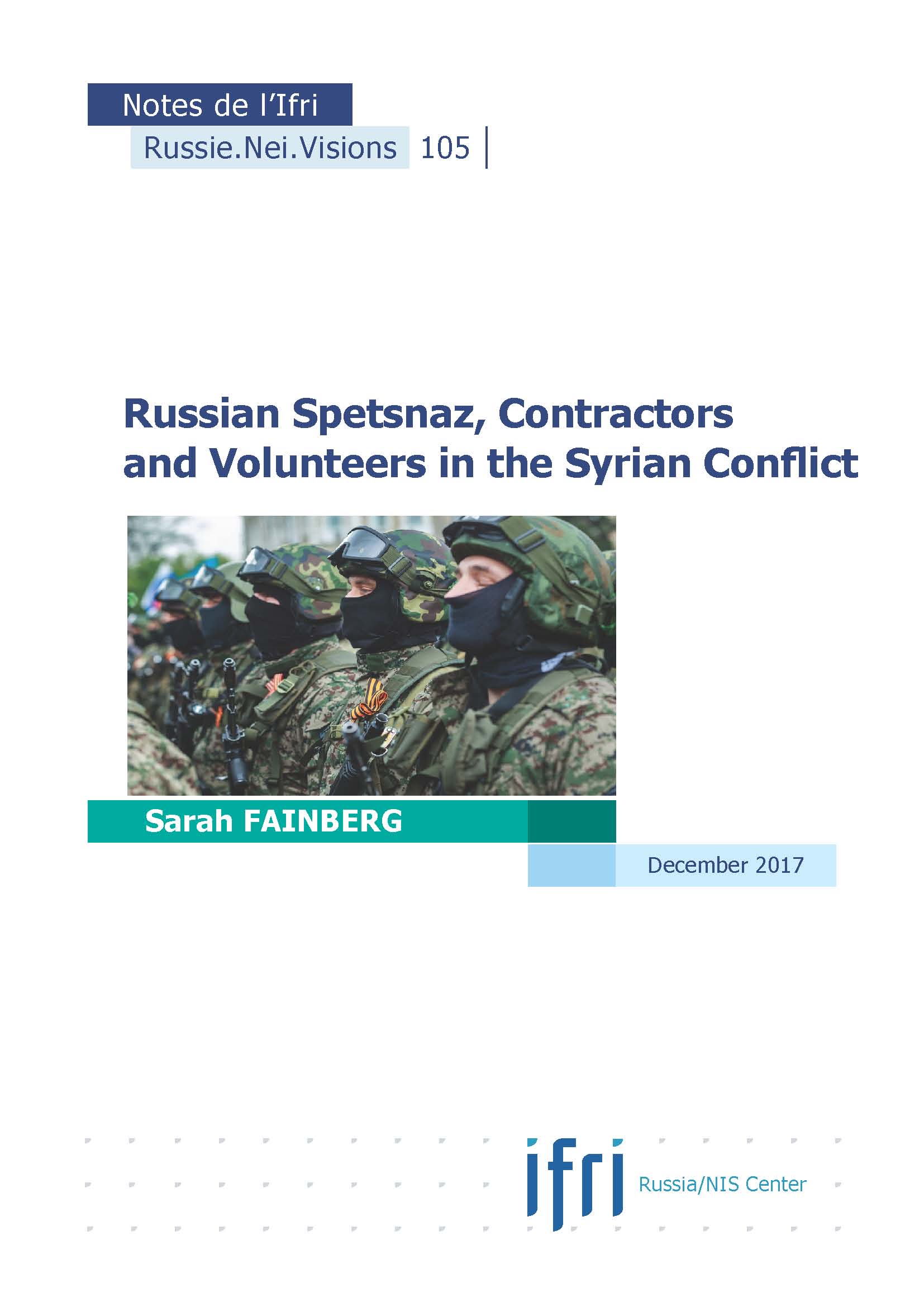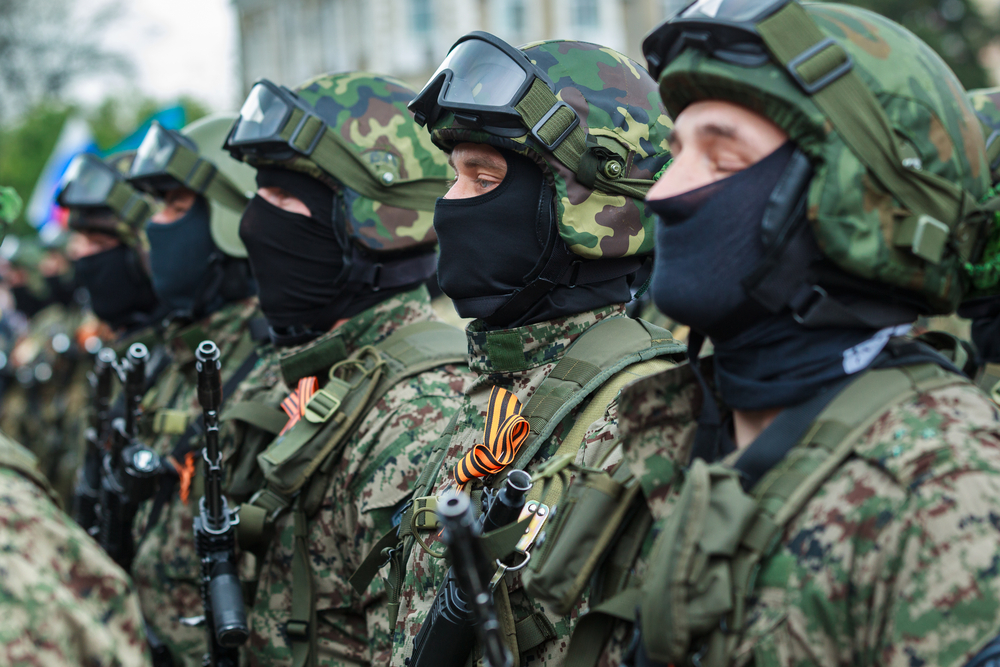Russian Spetsnaz, Contractors and Volunteers in the Syrian Conflict

This article focuses on a little-explored aspect of Russia’s intervention in Syria: the new and diverse expeditionary forces engaged on the Syrian frontlines alongside Russian regular armed forces.

Syria represents the first battlefield in which the Russian Federation has, in a coordinated manner and on a large military scale, deployed and activated a contingent of expeditionary forces including the new Special Operations Forces (SSO) and different categories of special forces (Spetsnaz); the newly created military police; military advisers and technicians; as well as "volunteers", "contractors" (kontraktniki) and other paramilitaries working on behalf of private military companies.
A graduate of the Ecole Normale Supérieure in Paris and holder of a PhD in political science at Sciences Po-Paris, Sarah Fainberg is a research fellow at the Institute for National Security Studies (INSS) in Tel Aviv.
Download the full analysis
This page contains only a summary of our work. If you would like to have access to all the information from our research on the subject, you can download the full version in PDF format.
Russian Spetsnaz, Contractors and Volunteers in the Syrian Conflict
Related centers and programs
Discover our other research centers and programsFind out more
Discover all our analysesThe Caspian Sea as an Emerging Energy Hub : Potentials and Limitations
This report analyzes the prospects of the Caspian Sea region — and its key actors except for Russia and Iran — becoming an important energy hub serving the needs of the European Union (EU).
The European Union's Strategic Test in Georgia
The political crisis brewing in Georgia is of an existential nature for the country. What is at stake is Georgia's future as a democratic and sovereign European nation (EU).
Commanders of Putin's Long War: Purged, Reshuffled and Disgruntled
The trend of reshuffling the Russian top military command in the course of a fast-evolving and far from successful war has progressed unevenly both across the Armed Forces’ structures and in time. The rationale for and timing of the abrupt cadre decisions made by Commander-in-Chief Putin often defy logical explanation, and the rare official clarifications are no more informative than the usual information blackout.
Russian Military Manpower After Two and a Half Years of War in Ukraine
In addition to a military victory in Ukraine, the Russian leadership is planning to build up sizable troop formations for a possible conflict with NATO in the Baltic region and the Kola Peninsula. In particular, current plans aim for the military manpower to grow by about 350,000, reaching a total of 1.5 million soldiers and commanders. In the context of the current conflict in Ukraine, this cannot be accomplished without a new wave of mass mobilization.









